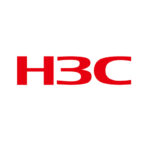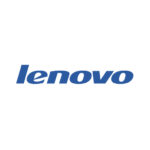BF Solar is a green initiative of BF Convergence
About Company
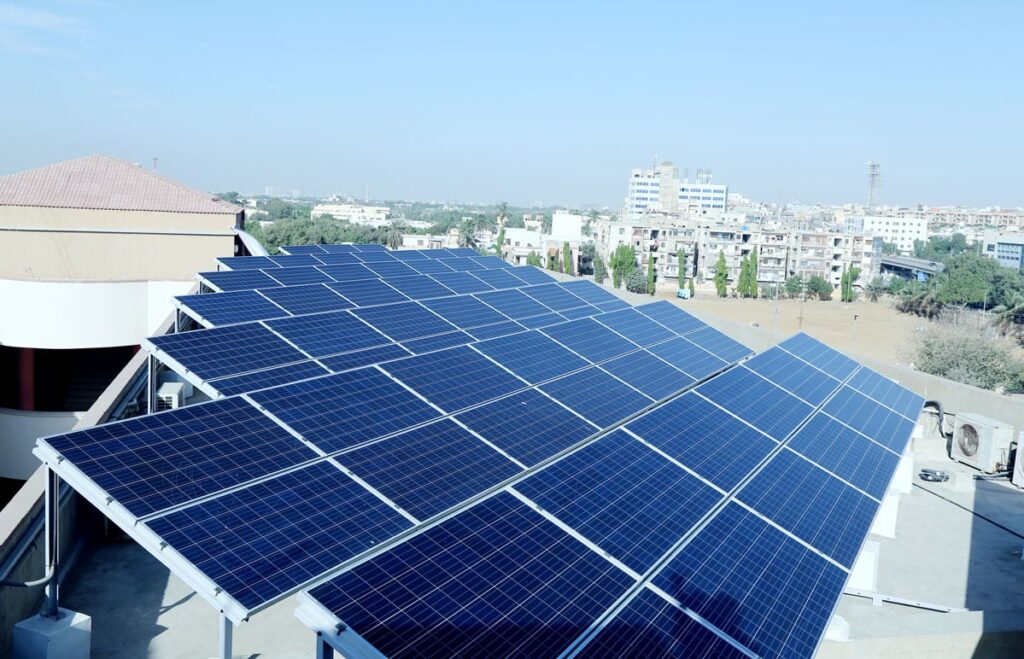

Engr. Dr. Shahid Mahmud
Chairman Beyond Future Group
An avid promotor of Sustainable Infrastructure and Smart City Development
Dr. Shahid Mahmud has over four decades of transformative leadership in technology and infrastructure development. He is an expert at delivering actionable solutions for critical global challenges, particularly in sustainable infrastructure, smart cities, loT, and Al-driven platforms.
Engr. Dr. Shahid Mahmud serves as the Chairman of Beyond Future Group (BF Group), a pioneering organization offering innovative solutions across diverse sectors including IT, EdTech, Solar Energy, and Digital Marketing. Under his leadership, BF Group has expanded its focus on sustainable practices and cutting-edge technologies, delivering impactful projects in areas such as security surveillance, access control, and fiber optics infrastructure. With over four decades of transformative leadership, Dr. Mahmud brings a strategic vision that integrates innovation with sustainability, driving advancements that address critical societal challenges while fostering growth and excellence across industries.

Captain (R) Bilal Hussain
CEO Beyond Future Group
With a proven track record of strategic leadership, Bilal has been instrumental in expanding BF Group’s portfolio, driving impactful initiatives across key areas like security surveillance, loT solutions, and renewable energy systems. His commitment to fostering technology-driven growth while ensuring operational efficiency positions BF Group as a leader in delivering cutting-edge services tailored to meet the evolving needs of businesses and communities. evolving needs
Under his stewardship, the organization continues to excel in blending technological advancements with sustainable practices, solidifying its reputation as a catalyst for progress and innovation in the region.
Engr. Dr. Shahid Mahmud
Chairman Beyond Future Group
An avid promotor of Sustainable Infrastructure and Smart City Development
Dr. Shahid Mahmud has over four decades of transformative leadership in technology and infrastructure development. He is an expert at delivering actionable solutions for critical global challenges, particularly in sustainable infrastructure, smart cities, loT, and Al-driven platforms.
Engr. Dr. Shahid Mahmud serves as the Chairman of Beyond Future Group (BF Group), a pioneering organization offering innovative solutions across diverse sectors including IT, EdTech, Solar Energy, and Digital Marketing. Under his leadership, BF Group has expanded its focus on sustainable practices and cutting-edge technologies, delivering impactful projects in areas such as security surveillance, access control, and fiber optics infrastructure. With over four decades of transformative leadership, Dr. Mahmud brings a strategic vision that integrates innovation with sustainability, driving advancements that address critical societal challenges while fostering growth and excellence across industries.

Captain (R) Bilal Hussain
CEO Beyond Future Group
As the Chief Executive Officer of Beyond Future Group (BF Group), a dynamic organization dedicated to providing transformative solutions in IT, EdTech, Solar Energy, Digital Marketing, and advanced infrastructure development. As CEO, Bilal leads with a forward-thinking approach, emphasizing innovation, sustainability, and customer-centric excellence.
With a proven track record of strategic leadership, Bilal has been instrumental in expanding BF Group’s portfolio, driving impactful initiatives across key areas like security surveillance, loT solutions, and renewable energy systems. His commitment to fostering technology-driven growth while ensuring operational efficiency positions BF Group as a leader in delivering cutting-edge services tailored to meet the evolving needs of businesses and communities. evolving needs
Under his stewardship, the organization continues to excel in blending technological advancements with sustainable practices, solidifying its reputation as a catalyst for progress and innovation in the region.

Solar panels
These are the fundamental component of a solar system. We have monocrystalline and polycrystalline solar panels from top brands.
Solar Inverters
Often termed as the brain of the solar panel system, we offer a broad range of efficient solar inverters that are available in many capacities and features.
Solar Batteries
They store energy in a hybrid and off-grid system. We have batteries with longer life, so you don’t have to spend extra money on this expensive equipment.
Solar Tubewell
Tube wells are the core of our agriculture system. We offer quality solar tube wells that will eradicate the load shedding problem in irrigation.
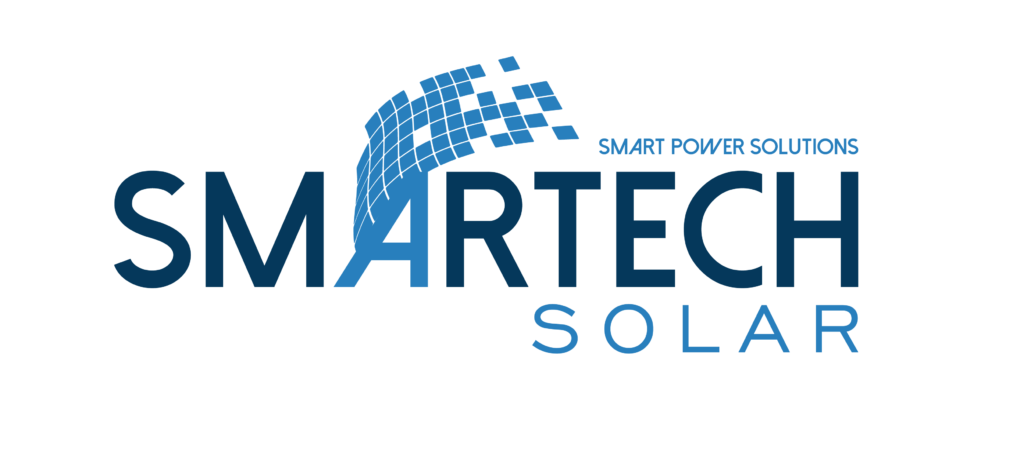
Smartech Solar
Smartech Solar specializes in providing smart solar system solutions; an Alternative Energy Development Board (AEDB) & Pakistan Engineering Council registered company. With its C1 level AEDB Licensing, it can undertake projects up to and above 500 KW projects in the renewable energy sectors. Presently, we are providing on-grid, off-grid and hybrid solarization solutions (Sun and Lithium-ion batteries), which are affordable and intelligently managed with smart technical devices for 24/7 App based real time monitoring. Currently, we are providing services to Armed Forces and residential, commercial, agriculture and industrial sector clients.
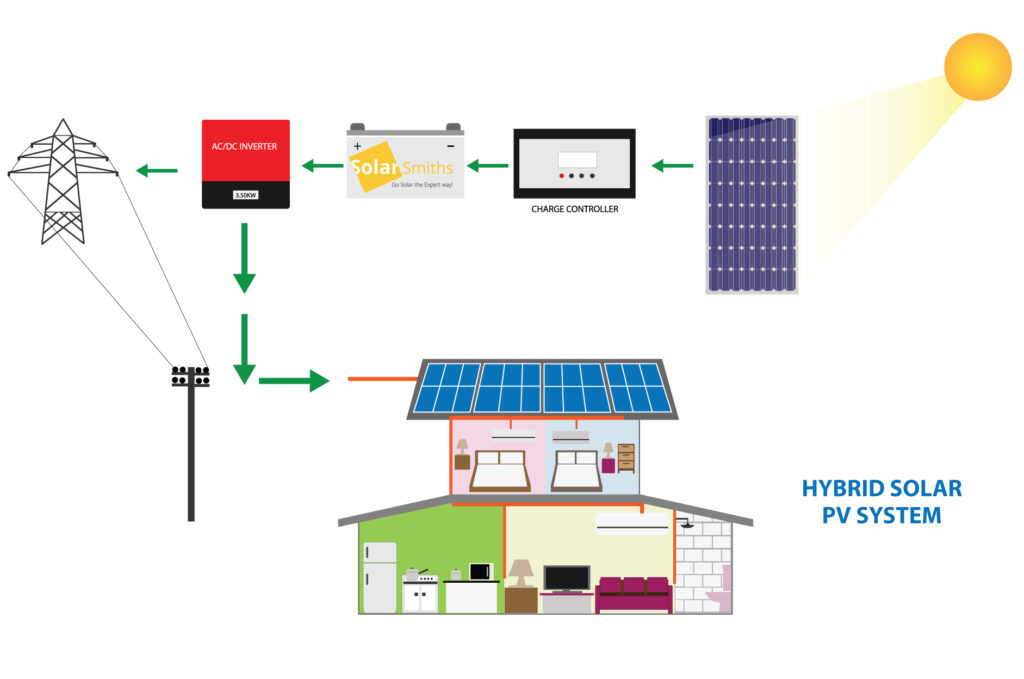
Hybrid Solar System
Grid-tied Solar System
Grid-tied solar energy systems are directly connected to the grid and cannot function when the grid is down. They can only generate solar energy when the sun is out and the grid is on. These systems are less effective as compared to hybrid solar energy systems, as they cannot generate power during load shedding and extensive power outages. Grid-tied solar energy systems also lack energy backups. So excess energy cannot be stored for future consumption. However, these systems do allow net-metering, which means excess electricity can be sold back to the grid.
Even though grid-tied solar energy systems are inexpensive, they cannot store electricity, are unhelpful during power outages. This makes them extremely dependent on another backup source (for continuous generation) and on the net-metering regime for electricity savings (since self-consumption is extremely low).
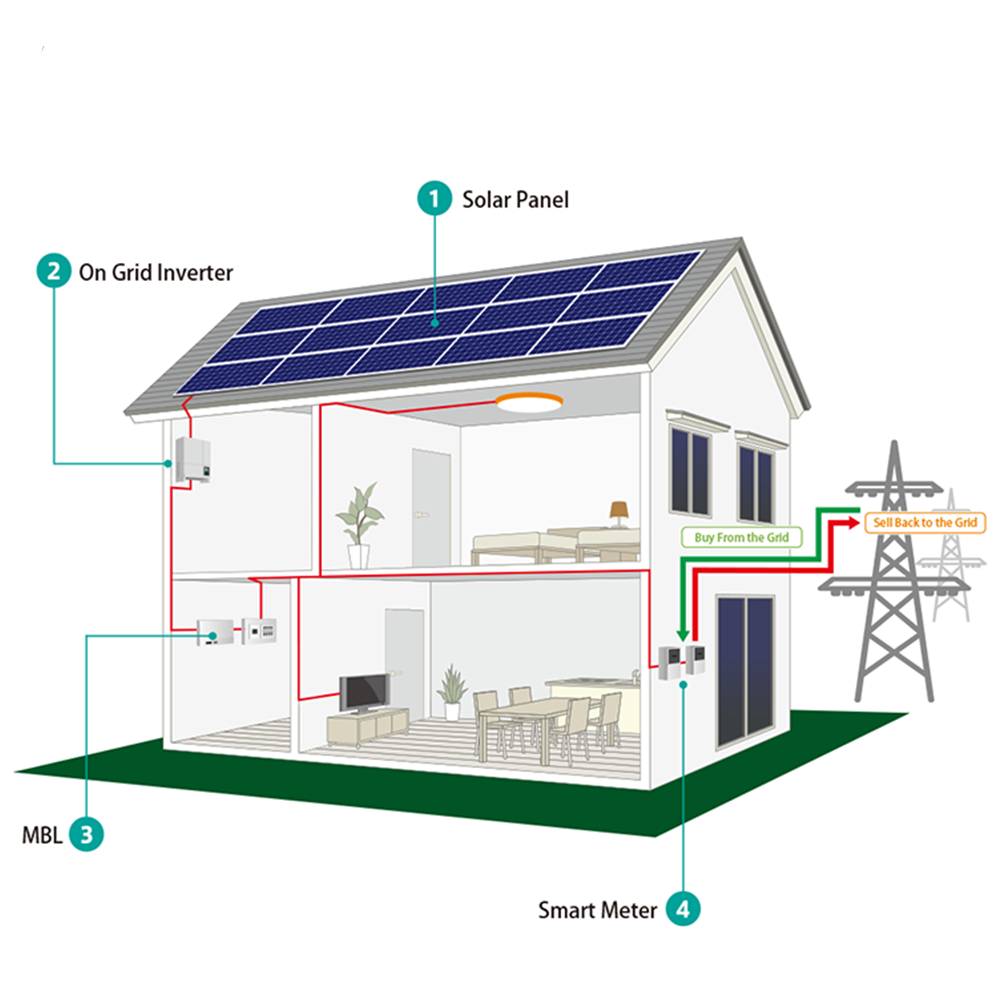
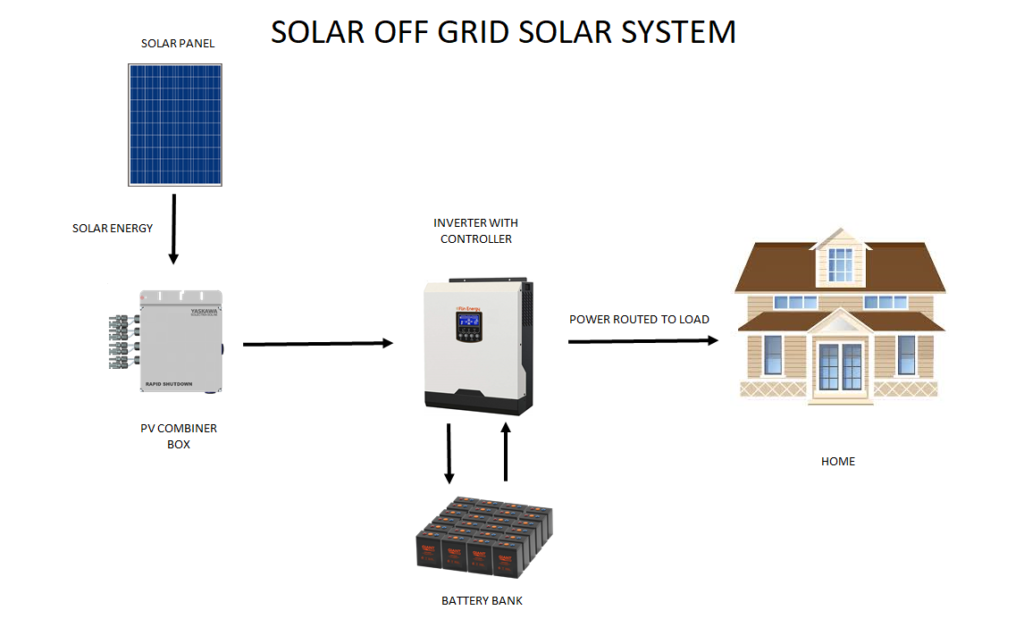
Off-Grid Solar System
Off-grid solar systems are not connected to an electric grid, and utilize battery storage systems to balance energy demands.
Houses with off-grid systems rely entirely on solar energy. Batteries are necessary with such systems—a home or business without a battery storage system wouldn’t be able to use electricity at night. The battery system stores excess electricity produced during the day, which can then be used at night to generate power.
Off-grid systems offer complete energy independence. However, there are a lot of limitations when compared to grid-tied systems. Off-grid systems and the batteries used for electricity storage will need a larger number of solar panels to generate the same electricity compared to grid-tied systems, as they serve as the sole source of power. Houses using such setups must be smaller and more conservatively designed because battery storage systems have limited capacity. Even a very large number of batteries will not have the capacity to power an entire home for more than a few hours.
Off-grid systems are also more costly, as they can’t utilize grid-based equipment to regulate power flow. Instead, this equipment must be installed as part of the system, thereby increasing overall cost of the solar solution.
What is Net-Metering
Net-metering is a feature in solar energy solutions that can reduce electricity bills by exporting the excess solar PV production during daytime back to the grid. The exported units then net off the imported units, which results in lower electricity consumption from the grid.
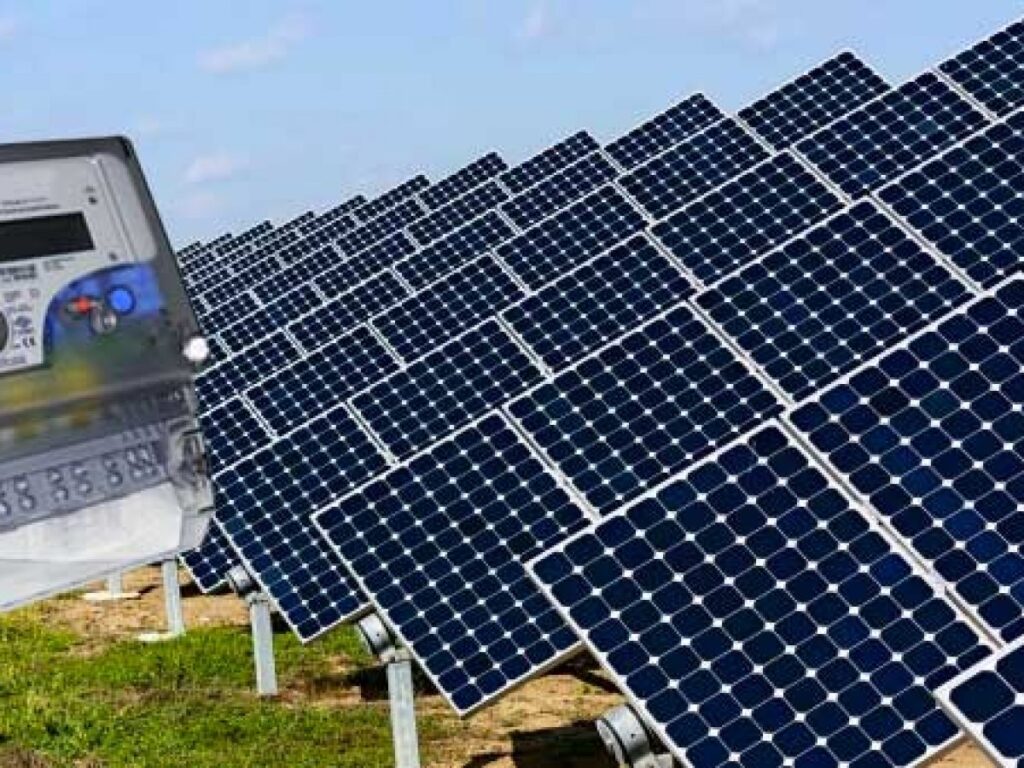
How Does Net-Metering Work
Most of the rooftop solar system users face a generation-consumption mismatch, where the bulk of the solar PV generation happens in a time window (typically between 10 am and 2 pm) when the consumption is very low. This mismatch can result in wastage unless this excess energy is not stored in batteries or fed to the grid. The exported units can then offset the increased grid consumption (imports) in after-sun hours when there is no solar production and the running loads on the grid are high.
Benefits Of Net-Metering
1- Reduces Your Electricity Bills
n export-enabled solar energy system can reduce your electricity bills significantly. It sells the excess energy back to the grid and cuts down electricity bills. It is a billing mechanism that enables a quicker return on investment in solar energy investment.
2- Contributes to the National Grid
Net-metered solar systems can become an inexpensive source of green energy for grid managers. In effect, the Government gets to have these mini solar power plants without having to make any capital investment in power generation infrastructure and without offering any sovereign guarantees. This results in huge fiscal and forex savings for the Government.
3- Encourages Investment in the Industry
Net-metering adds substantial value to the rooftop solar systems making them more viable through a reduced investment payback period. This drives more investment in the solar business which creates more jobs for engineers, installers, researchers, electricians, and manufacturers.
Strategic Partners



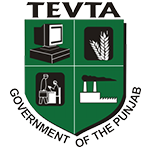





Channel Partners



